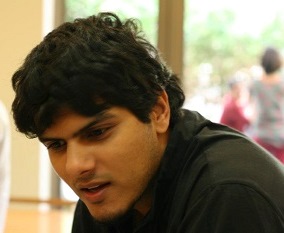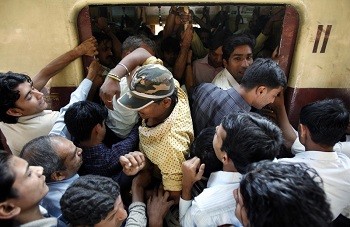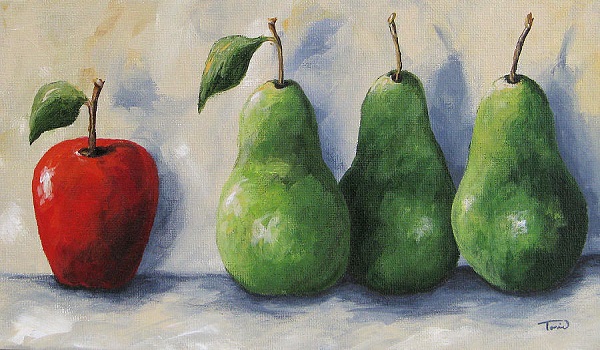Mayank Tandel had all the smarts to become successful. What made the young fisherman change his occupation, lifestyle and name?
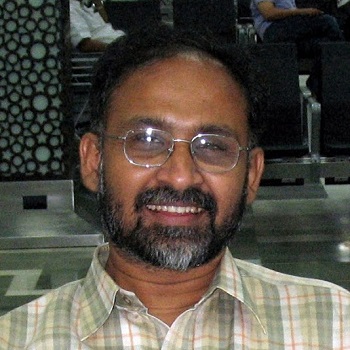 by Krishnaraj Rao
by Krishnaraj Rao
Tony was born Mayank Tandel. He grew up in Gorai village.He was richer than any child has any business to be. A two-mile expanse of beach was his playground. He loved the colourful shells and pebbles as if they were pearls and diamonds. He loved to run about with his friends on the hot sand at mid-day as if it was an endless expanse of cool grass. He loved the sea that his father and uncles pushed their little boat into with the outgoing tide, and he loved the load of fish that tumbled out of the boat by the bucket-loads when they returned.
Mayank would keep a lookout for the boat, and run home when he saw it coming, a long way off. His mother would drop whatever she was doing, and run with him to help unload the fish, and carry the buckets and baskets home to their front porch. She and his aunts would take complete charge of the fish from that point onwards — setting up a sort of display table for the large ones immediately, where half a dozen merchants would flock and haggle. The smaller ones would be sorted, to be sold by the basketload. The smallest would be spread out and dried in the sun, to be cooked and eaten later.
And some of the larger ones — pomfret usually — would be kept on festival days. The merchants would offer twice the normal price for them on these days, but she would just stash it away in her kitchen and refuse to discuss it, even with her own husband. The aroma ofpaplet cooking at home would drive Mayank into a euphoria of expectation.
His father was the king of the sea. Or so Mayank believed until he was 10. Then one day, he saw something that filled him with 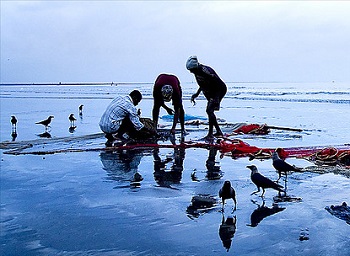 wonderment. A boat that was five times as large as his father’s boat. The thundering roar when the diesel engine was started up was something Mayank fell in love with the first time he heard it.
wonderment. A boat that was five times as large as his father’s boat. The thundering roar when the diesel engine was started up was something Mayank fell in love with the first time he heard it.
The boat belonged to a man called Deepya. “Hey Mayank! What are you gaping at?”, he yelled in coarse Marathi. “Come take a ride in the boat! All of you kids, get in!”
This boat, unlike theirs, stood bobbing up and down far from the shore. The kids unhesitatingly jumped in and swam to the boat, where Deepya leaned out and hauled them aboard.
And then, the next fifteen minutes were the most heavenly experience of his short life. It was the ride of a lifetime — the fastest that he had ever imagined possible. Gaping at the water rushing away behind the throbbing boat, leaving a spreading wake, he and his friends screamed in joy for so long they nearly forgot to inhale!
And so Mayank couldn’t understand why his father was so angry. He was livid with fury. He beat up Mayank and his mother, and disappeared into the night, shouting curses. When he returned, it was three in the morning, and the little hamlet was woken up by his drunken, filthy curses.
He fell on the ground, dribbling spit from the corners of his mouth. Mayank and his youngest uncle went out in the starlit night and half-carried, half-dragged him into their little hut, where his mother cried inconsolably, and called upon the gods to witness their misery.
From that day onwards, things went rapidly downhill. Three or four motorised boats appeared in their sea every year, and Mayank’s father often came home with an almost empty boat. The village was sharply divided in two — those who had motorised boats, and those that hadn’t. The ones who had these grew fatter every year. Their women and children wore better clothes than their neighbours. The aroma of paplet frying in their houses drove Mayank crazy every day, and he would now wait eagerly for the festive days, so that he could boast of having eaten it in his house. Imagine his disappointment on his 16th birthday, when his mother didn’t cook paplet, because she would have had to buy it from their wealthy neighbours! That was the last bloody straw!
By the time he was eighteen, Mayank’s shack was among the humblest, most ragged place there was in the village. Many of the neighbours had built bungalows, with electric wiring, bright lights, TV sets…the works! Many of those who had played with him in his childhood were going to college now, and looked the other way when they saw him coming. Mayank was among those who had dropped out of school in the ninth standard to join his father and uncles in hauling fish out of the sea. But he was moody. On some days, he wandered about the village, shouting filthy curses, throwing stones and getting drunk if he managed to steal money from somebody’s shop.
The family had one little thing going, though. Every year, in mid-June, when the seas turned treacherous, the motorboats were hauled up the beach with ropes, and left there till the end of the monsoons. Some of those with traditional boats took this chance to make good. They would wander out to sea with nothing but sails, oars and nets, careful to stay out of sight of the Coast Guard. If caught by a patrol boat, they bribed their way out. And at the first sign of a change in the wind, the boats would head for shore.
Several times, Mayank was the one to spot a low black cloud on the horizon. They managed to return ashore minutes before the storm broke out. On one occasion, they were still some way from the shore when the storm broke. The rain beat down on the little boat, and the waves raised it so high, and plunged it so deep that they had all but given up hope. It was only by rowing for all they were worth against the rising waves and swirling currents that they made it ashore.
 But it was well worth the risk, because fish caught in this season would sell for several times its normal price. Every year, the monsoon months of June, July and August made it seem like the good times were back again.
But it was well worth the risk, because fish caught in this season would sell for several times its normal price. Every year, the monsoon months of June, July and August made it seem like the good times were back again.
It got so that Mayank was sought after as a fine boatsman. Deepya offered him a good salary, and took him aboard his boat. Mayank’s father grumbled, but made his peace when he saw his first salary. How could he not? He had never seen a sum of five hundred rupees in his life!
And then, one sunny day in August ‘98, when Mayank was helping Deepya and his crew scrape the mussels off his beached boat before the annual repainting, he heard the storm warning on the radio. He said a silent prayer for his father and uncles, lit a beedi, and wordlessly continued scraping. Then, as the heavy black clouds, blacker than he had ever seen them before, blanketed the sky, he scraped harder and harder, his beedi hanging from his lips.
Deepya and the others had stopped work, and were standing at the stern, which was the highest part of the boat, looking out for the returning rowboats. One by one, all the boats of the village returned to shore. There was a little breeze, and it was shorewards, making their return easy and swift. Within the hour, all but Mayank Tandel’s people were safely back in the village.
“Let’s take your boat out and look for them, Deepya”, said Mayank quietly in Marathi, from under the boat, where he was still scraping.
“You know that isn’t possible, Mayank”, replied Deepya, gently. “Besides, there is still time for them.”
“There is no time, Deepya”, Mayank countered softly. “There is no time now. We must push this boat to sea now! Right now! Your boat will survive the waves…”
Deepya heard the note of desperation creeping into the young man’s voice. “I’m like your father, Mayank. I’ve been going out to sea from the time you weren’t even born. It can’t be done.” And to remove any shadow of doubt about his intentions, he added, “Cover the boat and go home, boys, all of you. Our work is over today.”
The crew stood uncertainly around, looking at Mayank with anxiety, and then looking at the still calm sea. They had never seen the sky so black before. 
And then, suddenly, they spotted the small boat in the distance. “Look, there!”, they pointed. “They are coming”.
With relief, they watched the little boat grow larger and larger, until it was a mere half-kilometre away. Mayank saw his father stand up and wave to him, and waved back. “Baba!” he shouted, his voice cracking. “Baba!” Throughout their matter-of-fact lives, he had never embraced his father, and he knew that when he came ashore, he would surely embrace him. Tears of joy welled up in his eyes.
And then the rain started. Big drops ran down his face, washing away his tears as they streamed from his eyes. The wind rose, the waves grew taller within the space of a few minutes. The boat was bobbing up and down alarmingly, ane every time it emerged from behind some wave, and was lifted high into the air by another, he screamed “Baba!”, and the others raised their voices with him. “Jump!” cried one. “Swim!” cried another. “Row harder!” cried Mayank.
“Deepya, we have got to take this boat there and rescue them!” he cried suddenly. “No!”, responded Deepya. “We must!”, cried Mayank. “We must! We must! WE MUST!”
“NO!”, roared Deepya above the gale and the crashing waves, the thunder and lightning. “NO! NO!”
Amidst the rising and falling waves, the little boat came up upturned, its black underside gleaming. Someone seemed to be hanging onto it, but it was difficult to be sure. Mayank sank to his knees and wept like a child, rubbing fistfuls of sand into his hair. Mayank’s mother and aunts appeared, running over a higher sandbar, from where they had been watching. They were screaming, wailing, tearing at their hair. They were embracing each other, they were shouting their husbands’ names into the sea, they were praying. The villagers gathered to comfort them and to shout vainly into the sea.
Deepya watched with desolate eyes. This is how he had lost two younger brothers, and his tears flowed freely. He wailed anew for his own brothers even as he wailed for Mayank’s people.
Amidst all this wailing and commotion, Mayank had fallen silent. He was gazing wordlessly at his mother and aunts, and then at this weeping middle-aged man. Wordlessly, he climbed into his boat, and emerged with an oar.
And nobody saw it happen when he brought the oar blade crashing down on Deepya’s head, splitting his skull wide open, and leaving him to bleed onto the wet sand.
*******
Several months later, Mayank was loitering near the waterfront at Apollo Bunder. He had sprouted a moustache, and become adept at keeping himself alive by picking pockets, cheating tourists, stealing from shops and running from the police. From his interaction with tourists, he had picked up a flamboyant style of talking that made it impossible for anyone to imagine that this was the boy from Gorai. In fact, you could quite factually say that this wasn’t Mayank Tandel at all!
He spotted Henderson the moment he emerged from the Taj Mahal Hotel, looking lost. He was carrying a big, unwieldy camera, and appeared to be looking for an impossible vantage point from where he could capture the entire magnificent view — The Gateway, The Taj, the boats, everything.
To him, Henderson looked like a particularly soft and succulent white fish that was a staple part of every fisherman’s catch — the Bombla or, as the British quirkishly named it, the Bombay Duck.
“Hello, Sir! Please to meet you, Sir!” said he jauntily, walking upto the British man, full of confidence. “My name is Tony, Sir! Tony D’Souza! How I can help you, Sir?”
Krishnaraj Rao is a journalist and activist.
(Pictures courtesy redroomboulevardblog.com, Akshathkumar Shetty, www.trekearth.com, Deepak Amembal, trivialmatters.blogspot.com)


